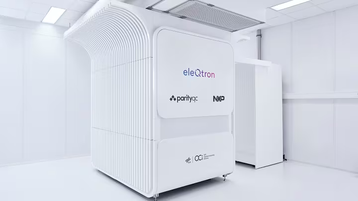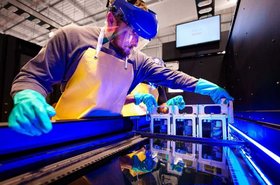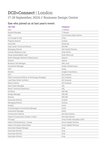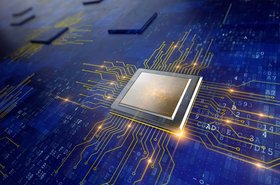A quantum computing demonstration system has been commissioned in Germany.
NXP Semiconductors and quantum computing startups eleQtron and ParityQC, working together in the QSea consortium of the DLR Quantum Computing Initiative (DLR QCI), recently revealed the first full-stack, ion-trap-based quantum computer demonstrator made entirely in Germany.
Located at the DLR QCI innovation center in Hamburg, the 10-qubit QSea I system was commissioned by the DLR QCI, and will be made available to companies and research teams.
The demonstrator includes prototype Magic hardware, the ParityQC architecture, and NXP’s chip design, which will be combined into a more powerful modular and scalable quantum computer in the upcoming QSea II system.
Jan Leisse, co-founder & CEO at eleQtron, said: “We at eleQtron believe that quantum computing will change our world for the better. The DLR Quantum Computing Initiative has the potential to become something truly great, and our pioneering Magic-based quantum computer lays the foundation for a vibrant ecosystem. As Germany's first quantum computing hardware company, we are proud to bring research excellence into the real world.”
EleQtron was founded in 2020 as a spin-off from the chair of quantum optics at the University of Siege. The company’s 'Magic' technology couples qubits to one another using magnetic field gradients. This method allows individual qubits to be controlled with high-frequency pulses in the microwave range, meaning that commercial signal sources can be used.
As well as the demonstrator’s operating system, ParityQC is also developing the digital twin of the quantum computer to monitor and improve performance.
QSea II will aim to connect several Magic QPUs into one system.
The DLR QCI aims to bring together industry, startups, and academia to jointly develop quantum computers, enabling technologies, software, and applications. The Federal Ministry for Economic Affairs and Climate Action of Germany is funding the initiative, which has two innovation centers in Hamburg and Ulm.
Dr.-Ing. Robert Axmann, head of DLR QCI, added: “The QSea I demonstrator is an important step for the DLR Quantum Computing Initiative and for Hamburg. It enables partners from industry and research to run quantum algorithms on real ion trap qubits in a real production environment for the first time. This hands-on experience will enable them to leverage the advantages of quantum computers and become part of a strong and sovereign quantum computing ecosystem in Germany and Europe.”
As well as QSea II, QCI is also working on quantum computers using organic molecular crystals, room-temperature diamond systems, neutral atom- and photonics-based computers, and portable silicon carbide systems, amongst others.
Lars Reger, CTO at NXP Semiconductors, said: “Hamburg is one of our most important R&D locations. We are proud that, together with DLR and our partners eleQtron and ParityQC, we are able to present the first ion-trap-based quantum computer demonstrator developed entirely in Germany. We are convinced that industry and research communities in Hamburg and throughout Germany will benefit from this project. It will help to build up and expand important expertise in quantum computing, to use it for the economic benefit of us all, and also to further strengthen our digital sovereignty in Germany and the EU.”







